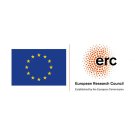EVALIDEA "Designing Institutions to Evaluate Ideas"

P.I. prof. Marco Ottaviani
Designing Institutions to Evaluate Ideas
Abstract
Not all new ideas are equally valuable from a social perspective. As the readers of this document know all too well, “picking the winners” is challenging because innovations have highly uncertain outcomes. The aim of this research project is to develop a general theoretical framework to investigate the design of institutions and mechanisms for evaluating new ideas and innovations. The proposed framework examine how these institutions function, draw parallels between them and suggest changes to ensure more accurate evaluation of ideas. Accurate evaluation is of paramount importance because in order for an idea to be successful, it is not enough that the idea be good. It is also necessary that the idea is recognized as good by those who evaluate it. As the evaluation process becomes more accurate, good ideas are more likely to be funded and incentives for the creation of good ideas are enhanced. A key contribution of our framework is a characterization of the role played by evaluating institutions in overcoming the inefficiencies resulting from decentralized interaction. These institutions act as intermediaries between innovators and users, and thus are able to redress the market failure resulting when ideas are evaluated in a more decentralized way. By viewing evaluating institutions through a common lens, we perform a comparative analysis of the workings of such diverse institutions as research funding bodies, government regulators, and screening panels of venture capitalists. With techniques from the economic theory of mechanism design, we intend to characterize the best institutional design for idea evaluation. We then compare this ideal benchmark with actual institutions and characterize how it depends on the primitive ingredients of the environment. Lastly, through empirical and experimental testing, we propose changes to institution design parameters and suggest modifications to the mechanisms created for the purpose of evaluating ideas.
Chapters in Books
- Forecasters' Objectives and Strategies, Chapter Prepared for the Handbook of Economic Forecasting, Volume 2, July 2011 (revised June 2012), by Iván Marinovic, Marco Ottaviani, Peter Norman Sørensen
Working Papers
- Hypertargeting, Limited Attention, and Privacy: Implications for Marketing and Campaigning, by Florian Hoffmann, Roman Inderst and Marco Ottaviani
Articles
- Just Enough or All: Selling a Firm, American Economic Journal: Microeconomics 2016, 8(3): 223–256
- Price Reaction to Information with Heterogeneous Beliefs and Wealth Effects: Underreaction, Momentum, and Reversal, American Economic Review, 105 (1): 1-34, January 2015
- Accept or reject? An organizational perspective, International Journal of Industrial Organization, 34: 66-74, May 2014

This project has received funding from the European Research Council (ERC) under the European Union’s Horizon 2020 research and innovation programme.